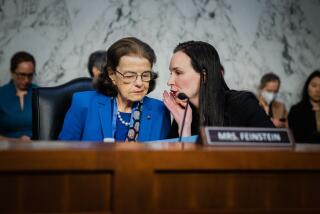Separating Public Lives From Private Ones
Is there a feminist perspective on the Clinton-Lewinsky scandal? For guidance on this kind of question, I often turn to the greatest 19th century American feminist thinker, Elizabeth Cady Stanton.
In 1890, Stanton spoke out on a sexual scandal rocking the British Parliament, which had many similarities to the current case. Charles Stewart Parnell, leader of the Irish Party in Parliament, was named as the adulterous correspondent--the third party--in the divorce trial of a fellow Irish MP. Conservatives jumped on the question of Parnell’s “character” and Liberals refused to stand up for him; Parnell was driven from his leadership position, the Irish Party was split and he died the next year.
From a thoroughly feminist position, Stanton insisted that Parnell not be evaluated solely--even primarily--on his private conduct. She argued that his “patriotism” was a virtue equal to and distinct from his “chastity.” The equality of the sexes, she reminds us, is ultimately a great matter of social policy, not a small one of personal conduct. Women’s rights will ultimately lead to improved (she would say “elevated”) relations between men and women, not the other way around.


